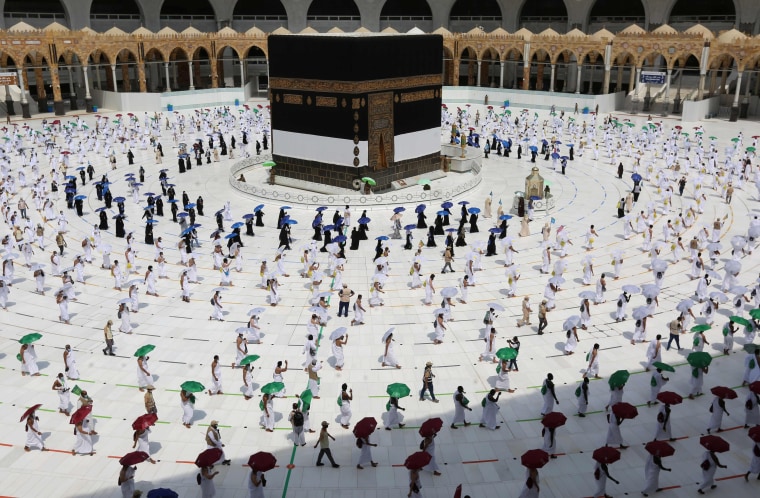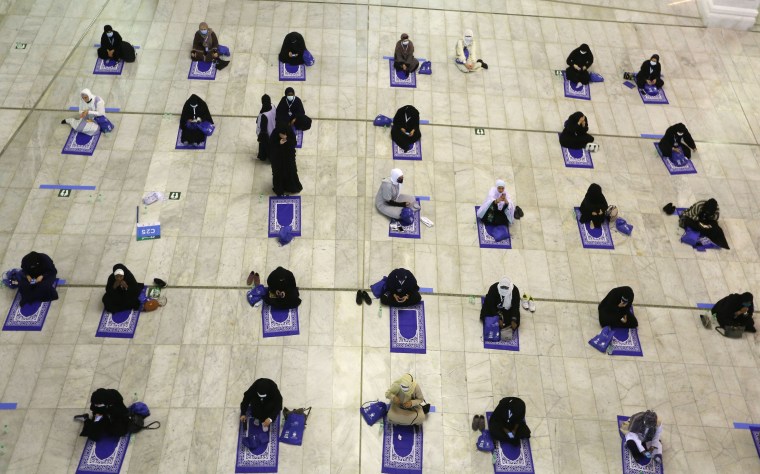Widespread testing, quarantine, social distancing, sanitized robes and tiny crowds. Like so much else this year, the hajj, the ancient Islamic pilgrimage in Mecca, has been dramatically changed by the coronavirus pandemic.
"Of course it's going to be different because this year there is a social distancing," pilgrim Zineb el Farissi, 37, told NBC News over Zoom on Monday. "We feel safe and of course, blessed to be chosen because as you know a lot of people are wishing to do hajj ... and they didn't get the chance yet."
The hajj, which began Tuesday, isone of Islam's most important requirements meant to be performed once in a lifetime, draws 2.5 million people to Saudi Arabia every year for about six days.

But this year, for the first time in Saudi history, the government barred Muslims from entering the kingdom. As few as 1,000 people already residing in the country were selected to take part in order to limit the spread of the coronavirus.
El Farissi was among the select few. Her husband, Yasser el Farissi, 39, said he was at first anxious about participating in light of the pandemic. However, the business development director said he now feels reassured by all the precautions being taken.
The couple were briefed on how to maintain their health and safety, tested for the coronavirus and placed in quarantine individually following their travel from their home in the capital Riyadh — as is required for all pilgrims.
Rather than praying shoulder-to-shoulder in a sea of people, they will be standing apart and moving in small groups of 20.
"Even the ihram, which is the formal dress for hajj, it was sanitized," Yasser el Farissi said.
The pilgrimage follows a route the Prophet Muhammad walked nearly 1,400 years ago and is believed to trace the footsteps of the prophets Ibrahim and Ismail — or Abraham and Ishmael — as they are named in the Bible.
The challenging journey is traditionally experienced with relatives of all ages and abilities. But this year, pilgrims selected are between the ages of 20 and 50 with no terminal illnesses and showing no symptoms of the virus.

They were given wristbands that connect to their phones and monitor their movement.
The Saudi government is covering all the pilgrims' expenses of travel, accommodation, meals and healthcare.
The rites performed on the journey have also been altered. Instead of sharing meals, pilgrims are eating prepackaged food alone in their hotel rooms.
They must drink water from plastic bottles rather directly from a well that has religious significance. Pebbles typically picked up along the route to cast away evil have been sterilized and bagged in advance.
While the experience is starkly different, it remains an opportunity for pilgrims to wipe clean past sins and deepen their faith.
Live footage from the Grand Mosque broadcast by the Saudi government on Wednesday showed a small number of pilgrims, moving several feet apart, performing the first rituals.
The Associated Press contributed to this report.
